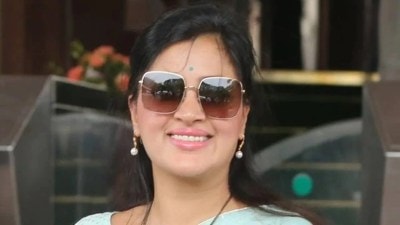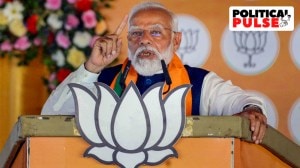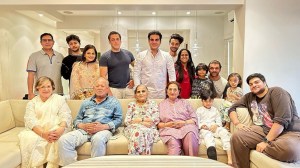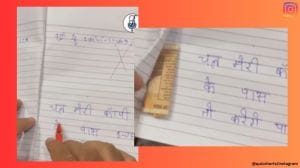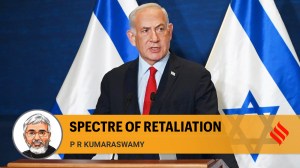- India
- International
Courts have said corrupt and terrorists have no right to privacy: Ravi Shankar Prasad
“Our courts have also stated that terrorists and corrupt have no right to privacy. Because the right to privacy has acquired critical proportions in the wake of digital landscape expanding globally,” Ravi Shankar Prasad said.
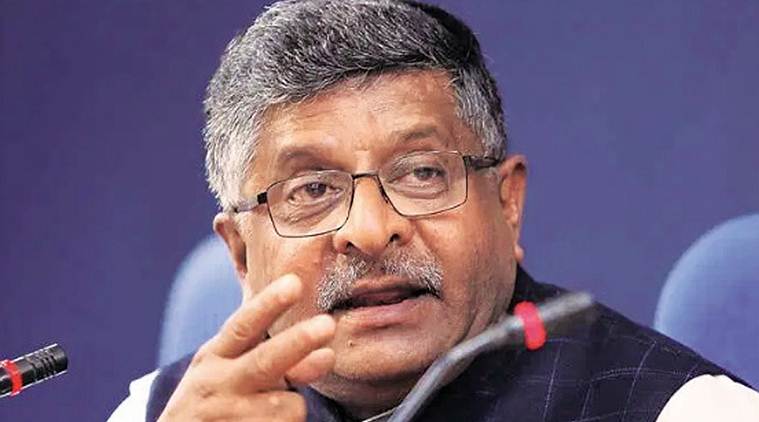 Union Law Minister Ravi Shankar Prasad said that while one should speak his or her mind, criticise, and ask questions, “but it all should work in a manner that the identity of India as a country continues to remain strong…”. (File Photo)
Union Law Minister Ravi Shankar Prasad said that while one should speak his or her mind, criticise, and ask questions, “but it all should work in a manner that the identity of India as a country continues to remain strong…”. (File Photo)
Union Law and Information Technology Minister Ravi Shankar Prasad on Saturday called for caution to ensure that terrorists do not abuse the digital ecosystem.
“…Internet is one of the finest creations of human mind. It should not be abused by a few. We need to acknowledge that some of the biggest terrorist threats have emanated by those who have abused this great innovation of human mind. I think that kind of balance has to be there,” the Minister said at the inauguration of the International Judicial Conference 2020.
Hailing the SC ruling holding privacy to be a fundamental right, Prasad said: “Our courts have also stated that terrorists and corrupt have no right to privacy. Because the right to privacy has acquired critical proportions in the wake of digital landscape expanding globally.”
He said that while one should speak his or her mind, criticise, and ask questions, “but it all should work in a manner that the identity of India as a country continues to remain strong…”.
On the subject of populism, Prasad said that “in a democracy we welcome dissent. We welcome populism too”, but “we have a problem also when populism impinges upon well settled constitutional principles. And populism also becomes a problem when those who have been rejected in the popular mandate become the biggest flag-bearers of populism”.

Read | PM Modi a versatile genius who thinks globally, acts locally: Justice Arun Mishra
The Minister said that while he was a great supporter of social media, there “is a dangerous… sinister trend of late developing globally and also in our country, that some people start campaigning as to what kind of judgment they expect and if the judgment is not in accordance with that, unleashing all forces of criticism”.
While criticising the judiciary was welcome, “some kind of norm has to be maintained if our rule of law has to acquire continued resonance”, he said. “Judges”, Prasad said, “must be left completely independent to give judgment as to what they think is the correct mode in accordance with rule of law”.
Addressing the conference, Chief Justice of India S A Bobde said the “success of the rule of law… depends on how the judiciaries respond to such challenges and how they emerge”.
He said that the fundamental feature of most modern constitutions is the idea of the rule of law, and this was “certainly the motto of the Indian Supreme Court” too, “which says that where there is adherence to law there is victory — ‘ya toh dharmast tatoh jaya’”.
India, the CJI said, had a “well-established system of courts” even before the arrival of the Mughals or the English. “The rules were all contained in the scriptures which prescribed a mandatory open hearing in courts, in the presence of officers of the court. For example, the Vyasa Smriti provides the various stages of a valid decision”, he said.
The CJI said that the Indian Constitution “is magnificent not just for its detail but also for the international inspiration that it drew and it continues to draw”. The constitution makers embraced a famous saying in the Rig Veda, which translates as ‘Let noble thoughts come to me from all directions’, he said.
“At the heart of the Constitution was the individual and the rights of individual were recognized as ‘fundamental’. These rights have been beautifully balanced with the demands of public order, morality and health”, the CJI said.
Delivering the introductory address, Justice N V Ramana said, “Terrorism is one of the main issues which has affected every part of the world and has no end in sight”, and “the judiciary needs to appropriately respond to this problem by evolving innovative principles and jurisprudence so that terrorism is kept at bay, while at the same time upholding the rule of law”.
On the importance of the conference discussing ‘the role of the judiciary in maintaining a gender just world’, Justice Ramana, who is also the second most senior judge of the SC, said: “The gravity of this topic stems from the fact that women constitute half the world’s population, perform nearly two thirds of work hours, receive one tenth of the world’s income and own less than 0.01 per cent of the world’s property.”
Apr 16: Latest News
- 01
- 02
- 03
- 04
- 05


